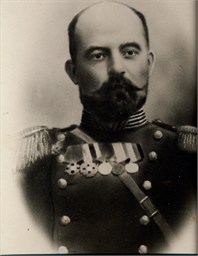The
cold unabating silence became unbearable. No laughing voices, no
innocent whispers, no pleasant conversations, just the heaviness of her
breath as she lay in eternal damnation.
As
she tried to speak her taut vocal cords, like a noose around her neck,
choked off the words; she tried to speak again, this time her tongue
forced words out—her once frolicsome voice, now reduced to a spiritless
sigh.
As
thirty-two-year-old Vera Figner sat in the absolute seclusion of
solitary confinement she remembered how Dmitrii Akhsharumov, a member of a
utopian socialist group, tried to preserve the function of his vocal
cords during imprisonment by reading aloud. A brilliant idea indeed, but
now too late for vocal exercise, Vera’s lost her will to speak, energy
seemed to bleed from her pores.
But
Vera was brassy, a self-described “mischievous romp,” a “squabbler”
who, during arguments with her siblings, threaten to “mop the floor”
with them.1 It should come as no surprise then that Vera soon
embraced her laconic lifestyle in the Russian Fortress of Peter and Paul
with a self-imposed vow of silence.
After
all, what did she have to lose? She was only allowed to speak once
every two weeks during visits with her mother and sister. Furthermore,
warders of the prison held Vera in solitary confinement—psychological
torture of the cruelest kind—and prevented gendarme from engaging in
dialog with inmates. There were no exceptions to this rule. No
pleasantries were to be exchanged, nor talking when the guards handed
out bread, and on their daily walk to the exercise yard, like deaf
mutes, the gendarmes remained speechless.2 But perhaps Vera
did miss spoken word, encouraging words from her mother or the
tête-à-têtes that sisters share. Maybe she missed the tone of her grade
school counselor Marya Stepanovna’s voice—a low, mellow voice which Vera swore spoke to her very soul. Or maybe it was better to forget such things.
But
before long, just like her vocal ability, jail house visits diminished.
The truth is, it might have been better if her family didn’t visit.
After all, even when Vera spoke to her loved ones she had nothing to
say. She had no words for mother or her sister, no questions to be asked
or answered, no explanations to be had or given. Besides, the ebb and
flow of emotion as thoughts swayed from anticipation of visitors to the
realization that in mere minutes the visit would end was too much to
take. It was pointless really—assembling strength for a short visit only
to collapse in despair upon returning to her damp, dark prison cell.
1 Vera Figner, Memoirs of a Revolutionist (New York: International Publishers, 1924), 19.
2. S. Stepniak, Russia Under the Tzars (London: Ward and Downey, 1885), 1:206.
“In silence, they come to your wicket, in silence they hand in your bread, in

Comments
Post a Comment